The Sub-Saharan Africa Cluster
If everyone helps to hold up the sky, then one person does not become tired.
- Askhari Johnson Hodari, Lifelines: The Black Book of Proverbs -
The Sub-Saharan Africa cluster - that, according to the Globe Project, includes Namibia, Nigeria, Zambia, Zimbabwe, and South Africa (Black population. White population considered as part of the Anglo Cluster) - is home to:
- high-context cultures, that rely on contextual knowledge more than on explicit messages to transmit and share information;
- past- and present oriented polychronic cultures, that see time as a a repetition of natural cycles and patterns;
- high levels of in-group collectivism (also defined as “family collectivism”, “the extent to which individuals identify with and prioritize the group they belong to”);
- a being orientation (based on “moral relativism”, the idea that moral principles are culture-bound: being cultures tend to more more concerned with maintaining the collective harmony than they are with pursuing the “truth”);
- strong and well-defined power dynamics, even though societies that belong to this cluster express a desire for a more even distribution of power and resources;
- a clear dislike for ambiguity and unpredictability (Uncertainty Avoidance. This cluster has wish for more rules and regulations to reduce the possibility of uncertain future outcomes);
- low levels of Gender Egalitarianism (the belief that people should receive equal treatment regardless of their gender);
A peculiarity of African societies (a trait they share with Eastern European-, Latin American, and Middle-Eastern societies) is that they score high in terms of In-Group Collectivism (ING, applicable to small groups) and relatively low in terms on Institutional Collectivism (INC): while individuals tend to feel a strong sense of obligation toward their families and organizations (a clear distinction is made between in-groups and out-groups), they don't necessarily strive to ensure that resources and opportunities are accessible to all members of the society.
While in the Sub-Saharan Africa cluster people tend to value leaders who are charismatic (inspirational/visionary/decisive), team-oriented, participative, it must be noted that the Humane-Oriented (Humane Orientation is defined as "the degree to which an organization or society encourages and rewards individuals for being fair, altruistic, friendly, generous, caring, and kind to others”, House et al, 2004, p. 569) leadership score is the second highest for all GLOBE clusters, preceded only by the Southern Asia cluster.
Autonomous- (the independent and individualistic style) and self-protective leadership (the self-conscious style that focuses on “face-saving”, on the safety and protection of the leader), are perceived negatively.
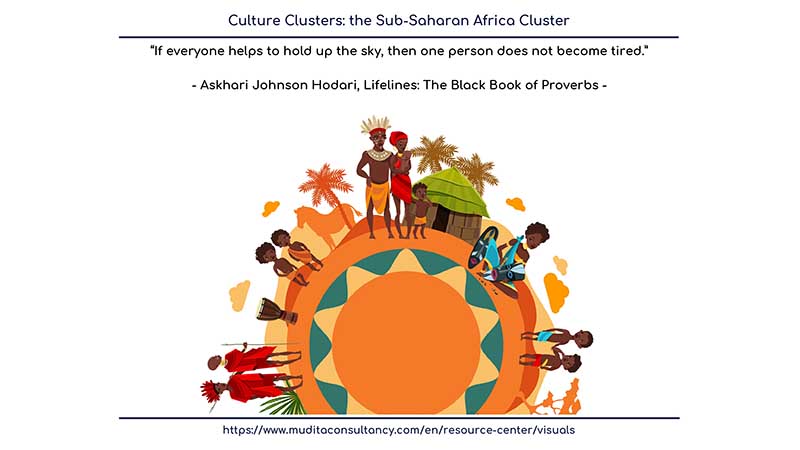
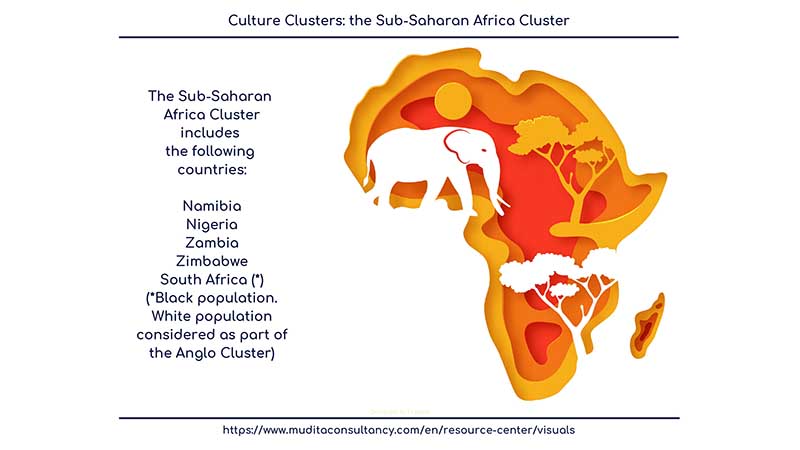
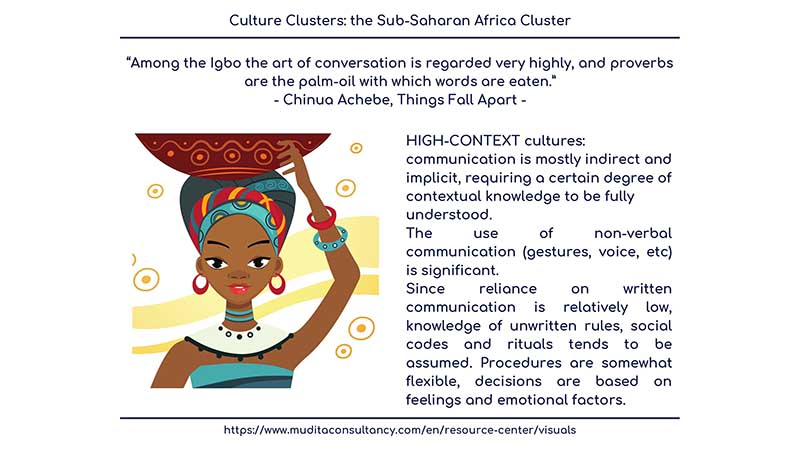

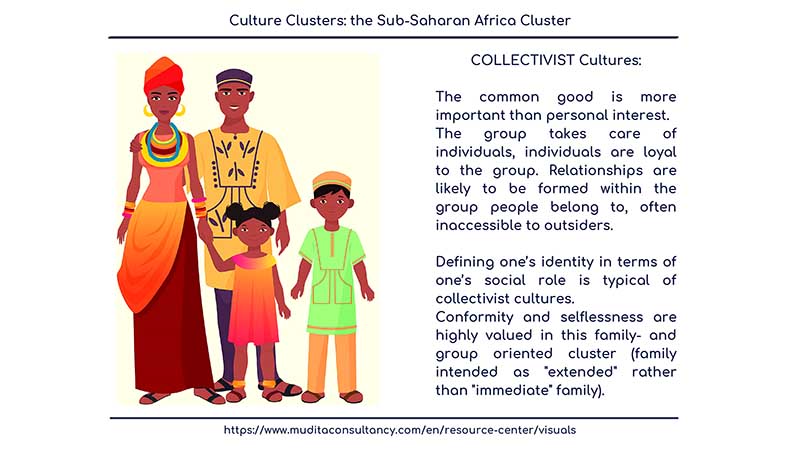
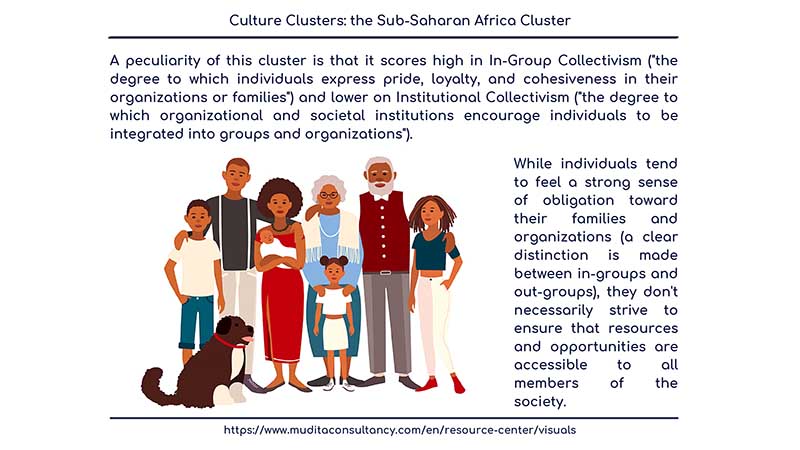
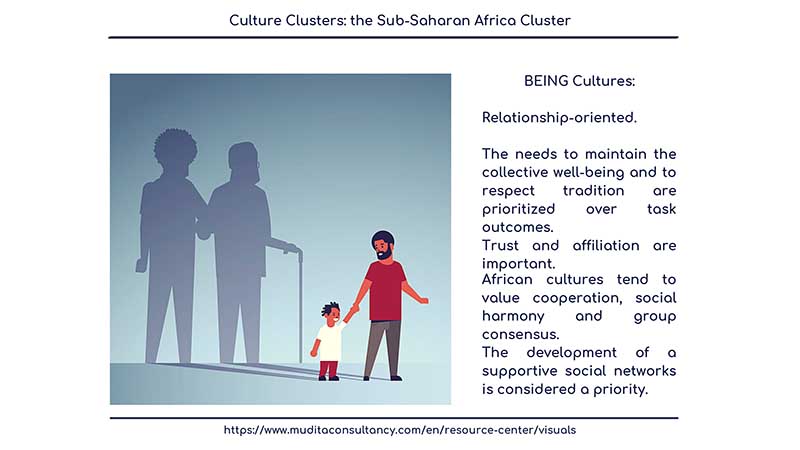
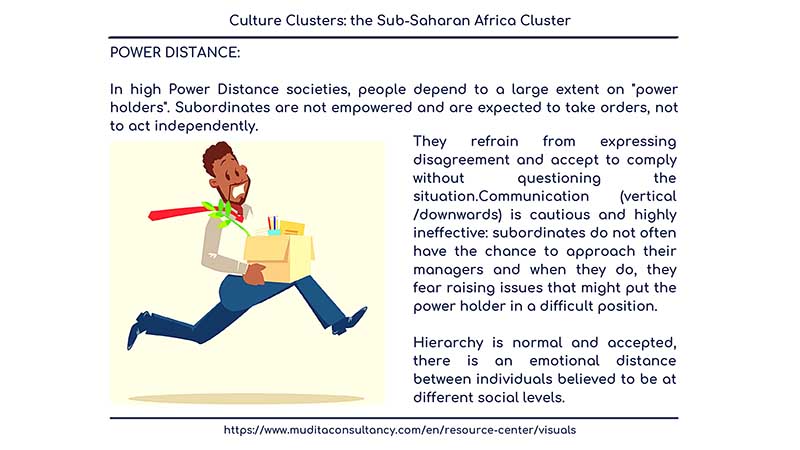
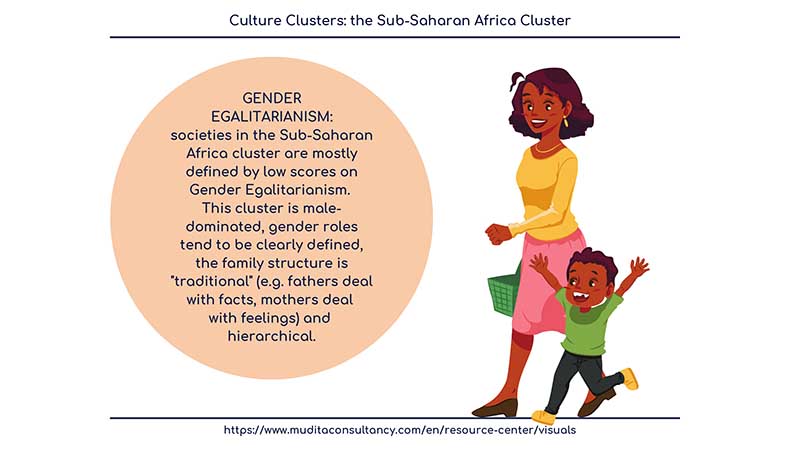
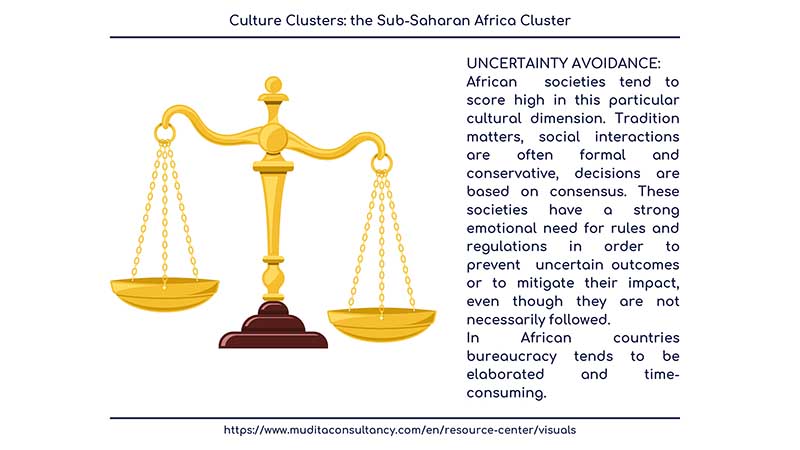
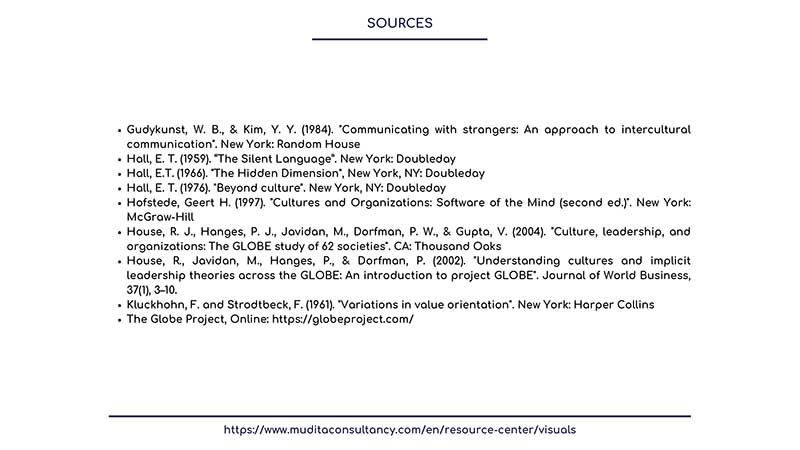
Related posts:
- The Middle East Cluster
- The Latin Europe Cluster
- The Germanic Europe Cluster
- The Eastern Europe Cluster
- The Nordic Cluster
- The Southern Asia Cluster
- The Confucian-Asia Cluster
- The Latin America Cluster
- The Anglo Cluster
***
SOURCES:
Gudykunst, W. B., & Kim, Y. Y. (1984). "Communicating with strangers: An approach to intercultural communication". New York: Random House
Hall, E. T. (1959). “The Silent Language”. New York: Doubleday
Hall, E.T. (1966). "The Hidden Dimension". New York: Doubleday
Hall, E. T. (1976). "Beyond culture". New York, NY: Doubleday
Hofstede, Geert H. (1997). "Cultures and Organizations: Software of the Mind". New York: McGraw-Hill
House, R. J., Hanges, P. J., Javidan, M., Dorfman, P. W., & Gupta, V. (2004). "Culture, leadership, and organizations: The GLOBE study of 62 societies". CA: Thousand Oaks
House, R., Javidan, M., Hanges, P., & Dorfman, P. (2002). "Understanding cultures and implicit leadership theories across the GLOBE: An introduction to project GLOBE". Journal of World Business, 37(1), 3–10.
Kluckhohn, F. and Strodtbeck, F. (1961). "Variations in value orientation". New York: Harper Collins
The Globe Project, Online: https://globeproject.com/
Disclosure: This post contains affiliate links. If you decided to buy any of the products listed here, I would earn a small commission (at no additional cost to you).

